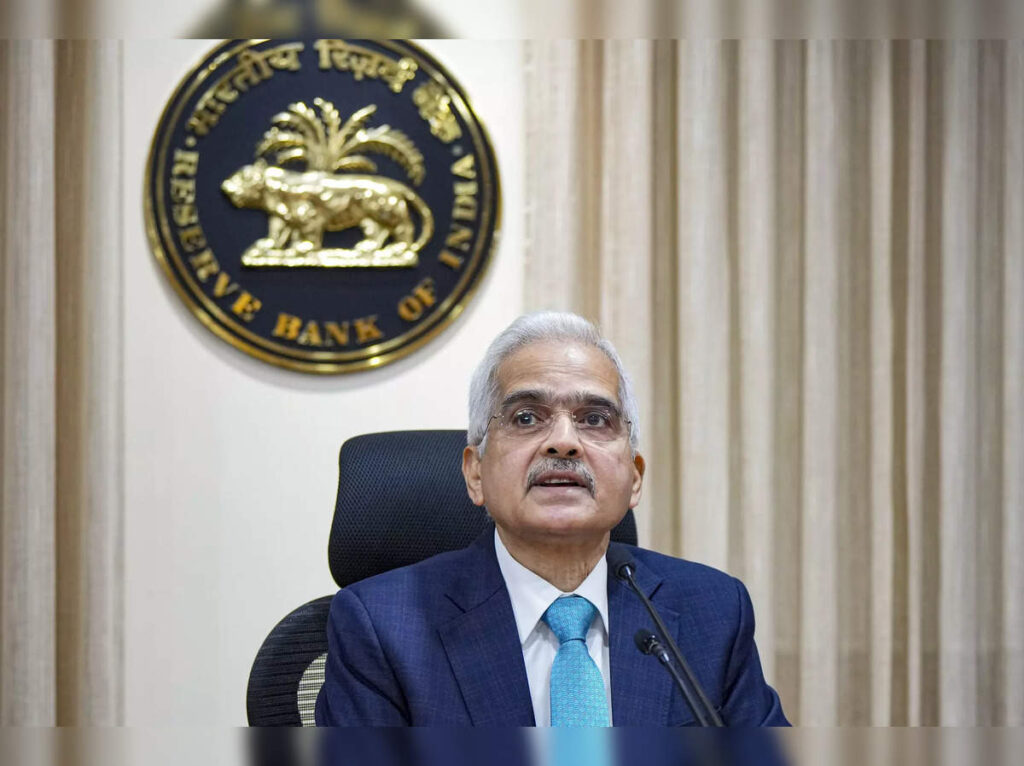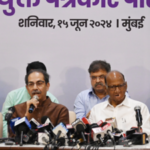MUMBAI: The Reserve Bank of India (RBI) Thursday expectedly kept interest rates and its monetary stance unchanged while making financial stability its evident policy priority, warning lenders about dumping loans on unsuspecting borrowers and thereby raising system-level vulnerability through questionable underwriting.
However, India’s economic growth is resilient and the inflation trajectory is headed down, although not at the pace that would provide comfort to the central bank, Governor Shaktikanta Das said while announcing a policy status quo for the ninth straight review meeting. Governor Das expressed concerns that certain entities are not strictly adhering to regulatory standards when it comes to loan-to-value (LTV) ratios, risk weights, and end-use monitoring.
“Such practices may lead to loaned funds being deployed in unproductive segments or for speculative purposes,” Das said in the policy announcement after a review that underscored the need for lenders to check the end use of loans such as those given for home improvement or as gold top-up.
The repo rate — or the rate at which the central bank lends to banks — will remain at 6.5% as four members voted for the status quo. All other rates also remain where they were. The Monetary Policy Committee (MPC) also retained the economic growth forecast at 7.2% and inflation forecast at 4.5% for FY25 while underscoring the importance of durable price stability to bolster growth. But it lowered the growth forecast for Q1FY25 to 7.1% from 7.3% and sharply increased the inflation projection for the second quarter to 4.4% from 3.8% earlier.
“The MPC judged that it is important for policy to stay the course while maintaining a close vigil on the inflation trajectory and the risks thereof,” Das said. “Resilient and steady growth in GDP enables monetary policy to focus unambiguously on inflation.” Two external members of the six member Monetary Policy Committee (MPC)—Ashima Goyal and Jayanth Varma—again voted for a rate cut and a change in stance to neutral. The other four members voted to maintain ‘withdrawal of accommodation’ as the monetary policy stance.
Stock markets fell with the Sensex shedding 581 points, or 0.73%, to close at 78,886.22. Bonds weakened slightly, with the yield on the 10-year benchmark government bond rising two basis points to close at 6.88%. The rupee ended at 83.96/$1, which is a record low first hit Wednesday.
“With this high share of food in the consumption basket, food inflation pressures cannot be ignored,’’ said Governor Das. “Further, the public at large understands inflation more in terms of food inflation than the other components of headline inflation. Therefore, we cannot and should not become complacent merely because core inflation has fallen considerably.’’ Demand is expected to remain relatively resilient as both rural and urban consumption are expected to gather momentum.
“Looking ahead, improved agricultural activity brightens the prospects of rural consumption, while sustained buoyancy in services activity would support urban consumption. The healthy balance sheets of banks and corporates; thrust on capex by the government; and visible signs of pickup in private investment would drive fixed investment activity,” said Das. He directed banks to focus on mobilising household financial savings rather than taking recourse to shortterm non-retail deposits.
“I am flagging this issue, that because of the diversion in growth of deposits versus credit, it can become a liquidity management issue that the banks have to deal with,” Das said, addressing the media after the review meeting. On the changes to immediate growth and inflation projections, Das said this is due to ‘updated information on certain high-frequency indicators, such as anticipated central expenditure and core industries output.’ Regarding the increase in inflation forecast in the second quarter, the governor said: “The expected moderation in headline inflation during the second quarter of 2024-25 on account of favourable base effects is likely to reverse in the third quarter.”
The MPC’s reiteration on meeting a 4% durable inflation target suggests that easing of monetary conditions could be delayed. India’s Consumer Price Index inflation was at 5.08% in June, up from 4.75% a month ago, latest data showed. “Noisy food inflation back home, and a still-elusive 4% inflation target formed the base for the RBI decision-making. Understandably, persistent food inflation averaging 8% in the past 12 months has prevented durable disinflation,” said Madhavi Arora, lead economist, Emkay Global Financial Services.
Amid global market volatility over the past week due to concerns over a slowdown in US economic growth and a flare-up in geopolitical tensions in the Middle East, Das said that market participants should keep in mind the strength of India’s macroeconomic fundamentals. “India has built strong buffers that impart resilience to the domestic economy from such global spillovers,” Das said.
Source: The Economic Times

 Maha Assembly Polls: Shiv-Sena (UBT), NCP (SP), Congress To Share Seats
Maha Assembly Polls: Shiv-Sena (UBT), NCP (SP), Congress To Share Seats 